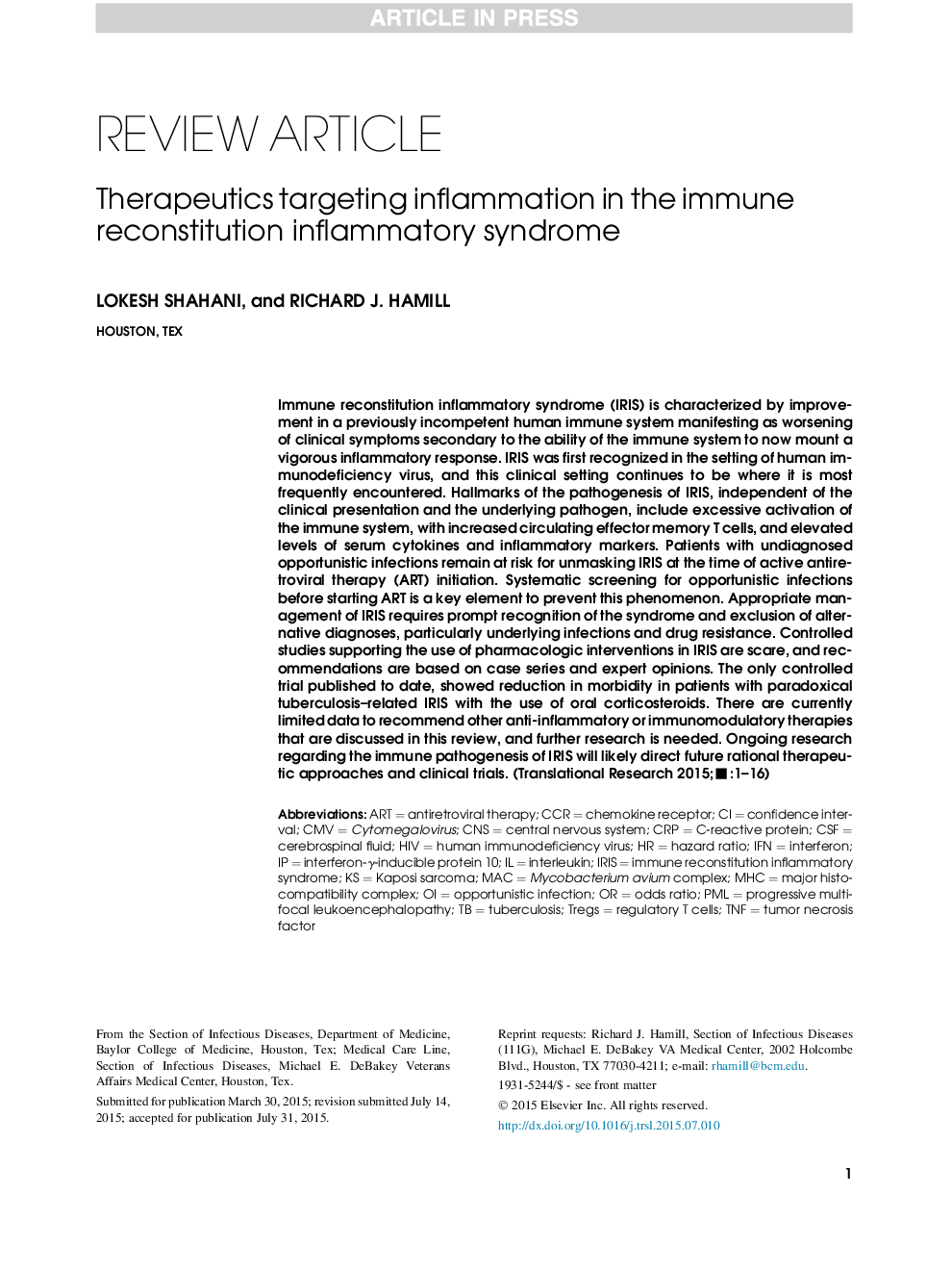| Article ID | Journal | Published Year | Pages | File Type |
|---|---|---|---|---|
| 6155934 | Translational Research | 2016 | 16 Pages |
Abstract
Immune reconstitution inflammatory syndrome (IRIS) is characterized by improvement in a previously incompetent human immune system manifesting as worsening of clinical symptoms secondary to the ability of the immune system to now mount a vigorous inflammatory response. IRIS was first recognized in the setting of human immunodeficiency virus, and this clinical setting continues to be where it is most frequently encountered. Hallmarks of the pathogenesis of IRIS, independent of the clinical presentation and the underlying pathogen, include excessive activation of the immune system, with increased circulating effector memory T cells, and elevated levels of serum cytokines and inflammatory markers. Patients with undiagnosed opportunistic infections remain at risk for unmasking IRIS at the time of active antiretroviral therapy (ART) initiation. Systematic screening for opportunistic infections before starting ART is a key element to prevent this phenomenon. Appropriate management of IRIS requires prompt recognition of the syndrome and exclusion of alternative diagnoses, particularly underlying infections and drug resistance. Controlled studies supporting the use of pharmacologic interventions in IRIS are scare, and recommendations are based on case series and expert opinions. The only controlled trial published to date, showed reduction in morbidity in patients with paradoxical tuberculosis-related IRIS with the use of oral corticosteroids. There are currently limited data to recommend other anti-inflammatory or immunomodulatory therapies that are discussed in this review, and further research is needed. Ongoing research regarding the immune pathogenesis of IRIS will likely direct future rational therapeutic approaches and clinical trials.
Keywords
TNFTregsPMLCCRinterferonIFNinterleukinTuberculosisAntiretroviral therapyCNSKaposi sarcomaregulatory T cellsImmune reconstitution inflammatory syndromeCMVcytomegaloviruscentral nervous systemOpportunistic infectionIrisconfidence intervaltumor necrosis factorProgressive multifocal leukoencephalopathyCSFCerebrospinal fluidmajor histocompatibility complexMHCMAChazard ratioodds ratioARTHIVhuman immunodeficiency virusinterferon-γ-inducible protein 10C-reactive proteinCRPMycobacterium avium complexchemokine receptor
Related Topics
Health Sciences
Medicine and Dentistry
Medicine and Dentistry (General)
Authors
Lokesh Shahani, Richard J. Hamill,
